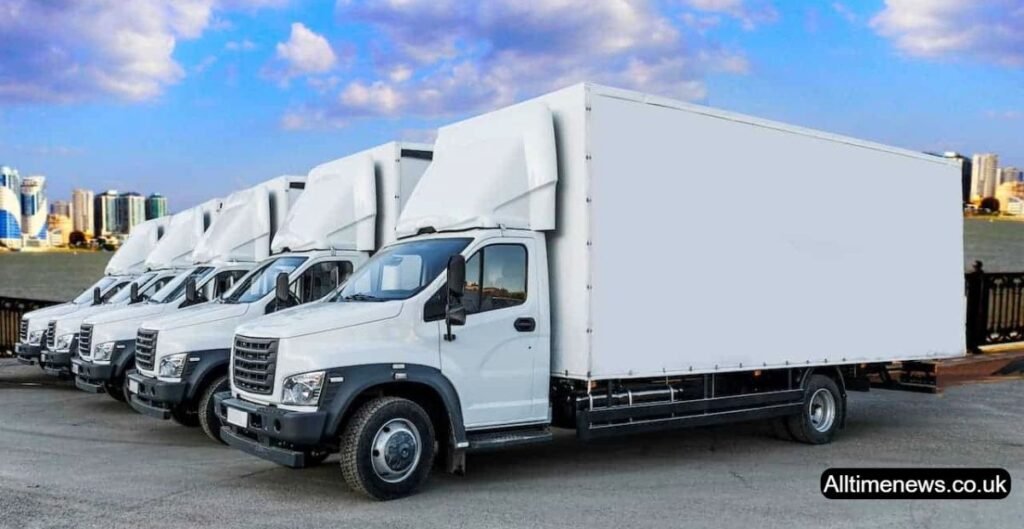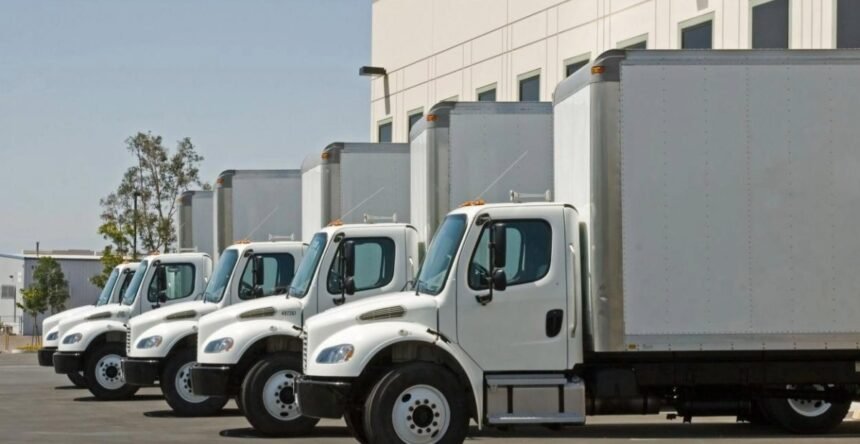Starting your own box truck business can be a rewarding journey, full of opportunities and growth. If you’ve been dreaming of running your own business and being your own boss, there’s no better time than now to take the leap. With determination and a well-thought-out plan, you can carve out a successful niche in the logistics industry.
What is a Box Truck?
A box truck, also known as a cube truck or straight truck, is a commercial vehicle characterized by its rectangular cargo area. This cargo space is enclosed and separate from the cab, making it ideal for transporting goods securely. Typically ranging in size from 10 to 26 feet, box trucks are widely used for moving furniture, delivering goods, and serving as mobile workshops. Their versatility and capacity make them a popular choice for small and medium-sized businesses.

Why Should You Start a Box Truck Business?
Starting a box truck business can be highly lucrative due to the constant demand for goods transportation. The e-commerce boom, coupled with the ongoing need for local delivery services, has created numerous opportunities for box truck operators. With relatively low startup costs compared to other logistics businesses and the ability to operate on a flexible schedule, a box truck business offers an attractive entry point into the transportation industry.
Steps to Start a Box Truck Business in 2024
1. Conduct Market Research
Before diving into the box truck business, it’s essential to understand the market. Research the demand for delivery services in your area, identify potential competitors, and explore various niches, such as furniture delivery, e-commerce logistics, or moving services. Understanding the market will help you tailor your services to meet local needs and stand out from competitors.
- Identify your target customers: Are they small businesses, individuals, or large corporations? Knowing your customers will help you tailor your services and marketing efforts effectively.
- Evaluate the competition: What services do they offer? What are their pricing models? Learn from your competitors to find gaps in the market that you can fill.
- Determine demand: Is there a steady need for box truck services in your area? Assessing demand ensures you start your business on solid ground.
2. Develop a Business Plan
A well-structured business plan is crucial for the success of your box truck business. This document should outline your business goals, target market, marketing strategy, and financial projections. It serves as a roadmap for your business and is essential if you plan to seek financing.
- Define your services: What specific services will you offer? (e.g., last-mile delivery, moving services, etc.) Clear service offerings help attract the right clients.
- Set pricing models: Consider hourly rates, per-mile charges, or flat fees based on the type of service. Competitive pricing can be a significant factor in gaining new clients.
- Project financials: Estimate startup costs, monthly expenses, and potential revenue. Having a solid financial plan helps in managing your business efficiently.
3. Obtain the Necessary Licenses and Permits
Operating a box truck business requires several licenses and permits, which may vary depending on your location. Typically, you’ll need a commercial driver’s license (CDL) if your truck exceeds a certain weight. Additionally, you’ll need to register your business, obtain a USDOT number (if crossing state lines), and secure insurance for your vehicle and cargo.
- Register your business: Choose a business structure (e.g., LLC, sole proprietorship) and register with your state. Proper registration is crucial for legal operation.
- Obtain a CDL: Check if your truck’s weight requires you to have a CDL. Proper licensing ensures compliance with state and federal laws.
- Secure insurance: Protect your business with liability, cargo, and vehicle insurance. Adequate insurance coverage shields your business from potential risks.
4. Purchase or Lease a Box Truck
Choosing the right truck is a critical step in starting your business. Consider factors such as size, fuel efficiency, and condition (new or used). Depending on your budget, you can either purchase or lease a truck. Each option has its pros and cons; buying offers ownership, while leasing may require less upfront capital.
- Evaluate truck sizes: Determine the right size based on the types of jobs you plan to take on. The correct size ensures efficiency and cost-effectiveness.
- Consider new vs. used: New trucks offer reliability, while used trucks are more budget-friendly. Weighing the pros and cons helps you make the best decision for your business.
- Explore financing options: Look into loans or leasing options that best fit your financial situation. Flexible financing can ease the burden of startup costs.
5. Market Your Box Truck Business
Once your business is set up, it’s time to attract customers. Start by creating a strong online presence through a professional website and social media platforms. Use local SEO strategies to ensure your business appears in search results. Networking with local businesses and offering referral discounts can also help you build a steady customer base.
- Create a website: Highlight your services, pricing, and contact information. A professional website builds credibility and attracts potential clients.
- Use social media: Engage with potential customers and showcase successful deliveries. Social media platforms can be powerful tools for marketing and customer interaction.
- Leverage local SEO: Optimize your online presence to attract customers searching for services in your area. Effective SEO strategies increase visibility and customer reach.
How to Find the Right Clients for Your Business
Finding the right clients is crucial for the growth and success of your box truck business. Start by identifying businesses and individuals who need reliable transportation services. Networking with local businesses, joining industry groups, and attending trade shows can help you connect with potential clients. Additionally, leveraging online platforms and listing your services on business directories can increase your visibility. Offering excellent customer service and asking for referrals from satisfied customers can also help you build a loyal client base.
You may also like:
- The Complexity of Financial Contract Management
- Used as a campaign talking point NYT Crossword Clue & Answers
Conclusion
Starting a box truck business in 2024 offers a promising opportunity to tap into the growing logistics and transportation market. By conducting thorough market research, developing a solid business plan, securing the necessary licenses, and effectively marketing your services, you can build a successful and sustainable business. With the right strategies, your box truck business can thrive in this competitive industry.
FAQs
1. Do I need a CDL to drive a box truck?
It depends on the size and weight of the truck. Generally, if the truck’s Gross Vehicle Weight Rating (GVWR) exceeds 26,000 pounds, a CDL is required.
2. How much does it cost to start a box truck business?
Startup costs vary but typically range from $10,000 to $50,000, depending on factors such as truck purchase or lease, licensing, and insurance.
3. Can I operate a box truck business part-time?
Yes, many box truck businesses start as part-time ventures. You can choose to operate on weekends or during off-hours, gradually scaling up as demand increases.
4. What types of insurance do I need for a box truck business?
Essential insurance policies include commercial auto insurance, general liability insurance, and cargo insurance to protect against potential damages or accidents.
5. How can I find clients for my box truck business?
Start by networking with local businesses, promoting your services online, and asking satisfied customers for referrals. Local advertising and listing your business on delivery service platforms can also help attract clients.
